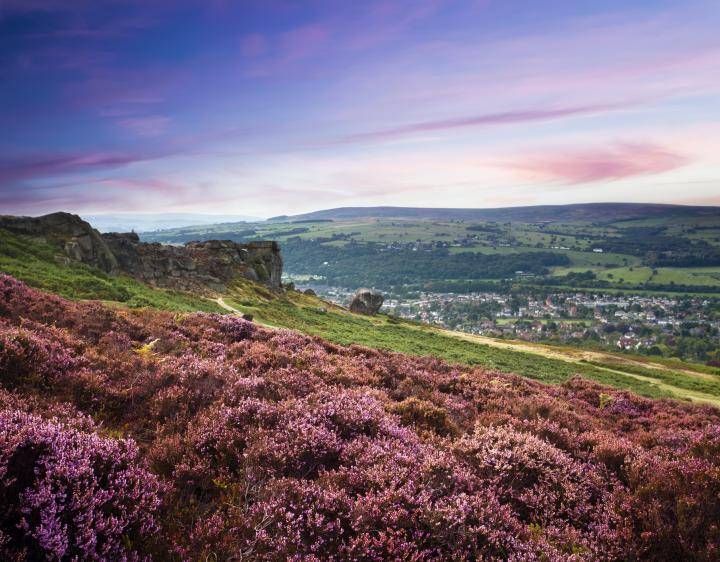
In the UK, April is a month usually associated with rain showers. This April, not-so-much. Rainfall was 71% of the 1981-2010 long term average1. The monthly average temperature was 1.0° Celsius above the long term mean of 8.4°. These deviations are not particularly startling by the standards we are becoming used to in the era of climate change. But they were enough to produce some more reminders of the future we face.
Your correspondent grew up in a small town in the north of England called Ilkley. It is overlooked by a moor. That moor has been made famous-ish by a song, “Ilkla Moor Baht ‘at”, which, in a roundabout way, is about the carbon cycle2. Visiting my parents, I ran across Ilkley Moor early in April and was amazed how dry it was. Two weeks later, on 21 April, it caught fire and burned for two days.
A moorland fire in spring isn’t actually that rare. Managed fires are used to keep down overgrowth, particularly in areas used for grouse shooting. They are deliberately started when the underlying ground is wetter, as that makes them easier to control. This “muirburn3” season runs until mid-April, when the risks start to go up.
The Ilkley blaze wasn’t in this category. It appears to have been started by a teenager, who has been charged with arson4. And it spread quickly because the moor was like a tinderbox. It was only prevented from reaching the town by a major emergency response. As many as 14 fire crews5 and two helicopters were involved.
We wrote about investing in climate change adaptation in our quarterly report in July 2018. There are lots of companies whose products and services are needed to prevent fires like this from breaking out. Those companies help to manage heat and water, or to build infrastructure around areas of risk.
We do also invest in companies that are part of the response, in our “Safety” theme. MSA Safety is the world’s leading supplier of safety clothing and equipment. It has number one market positions in breathing apparatus, helmets, and firefighter clothing.
MSA Safety has a pretty special competitive advantage. Fire crews, and fire crew unions, know and trust its equipment. They’ve been working with it for generations. The company was founded in 1914. Governments, rather than the fire crews themselves, buy the equipment. But they’re reluctant to buy anything the crews don’t trust.
So MSA is defending or increasing its market share, as climate change starts to drive up the demand for rescue equipment. A category that used to grow in line with overall economic growth is now forecast to grow as much as twice as fast6. MSA’s stock has already been a great performer, outperforming the index by 155% since we first bought it7. We think there is more to come.
A fire-blackened hillside two hundred metres from my parent’s home is a poignant experience of climate change. We in the West and particularly in the UK are mercifully sheltered from its worst effects. But more and more of us are touched by climate change. We’re becoming alarmed by the problem and trying to find ways to contribute to a solution.
Back in London, that same two hundred metres distance separated our office from the Extinction Rebellion climate protests at Oxford Circus. Protesters from around the country gathered for peaceful but impactful demonstrations. They don’t think the UK government, or global governments, are moving fast enough to address the climate crisis.
We agree with them. WHEB’s partners were co-signatories of a letter to The Times8, supporting the protesters’ agenda. We know that a real climate response doesn’t need to be economically damaging. With every investment we make, we are building this case.
1 https://www.metoffice.gov.uk/climate/uk/summaries
2 https://en.wikipedia.org/wiki/On_Ilkla_Moor_Baht_%27at
3 https://www.bbc.co.uk/news/science-environment-47389480
5 https://www.bbc.co.uk/news/uk-england-leeds-47999394
6 https://www.grandviewresearch.com/industry-analysis/fire-safety-equipment-market
7 Source WHEB/ Bloomberg
8 https://www.whebgroup.com/news-views/wheb-in-the-news/ (April 23 2019)
